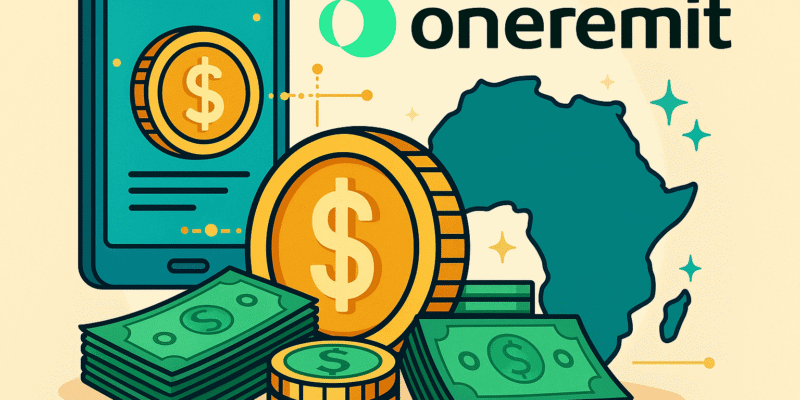For millions of Africans, sending money home remains one of the most expensive financial activities in the world. Between delays, conversion losses, and hidden charges, remittance costs can eat up a significant share of each transfer. That is the problem Oneremit stablecoin payments are helping to solve.
The Nigeria-based fintech company has embraced stablecoins as a bridge for cross-border transfers. Instead of relying on traditional banking rails that move slowly and charge heavily, Oneremit uses blockchain-backed digital currencies like USDT and USDC to move value instantly between countries. The model allows users to send and receive money in minutes rather than days, often for less than one percent in transaction fees.
Remittances are central to Africa’s economy. They fuel households, sustain small businesses, and support millions of families across the continent. Yet, according to the World Bank, sub-Saharan Africa remains the most expensive region to send money to, with average costs hovering around eight percent per transaction. By using Oneremit stablecoin payments, these costs drop dramatically, giving people more control over their income.
The company’s system works through a hybrid model that connects local currency wallets with blockchain infrastructure. A sender in Europe, for instance, can use Oneremit to convert euros to a stablecoin, which is then transferred digitally and instantly converted to naira, cedis, or shillings for withdrawal on the other side. It’s a modern fix for an old problem — accessibility without complexity.
Oneremit’s vision also goes beyond personal remittances. Small businesses and freelancers are adopting the platform for cross-border payments, payroll, and international trade. This marks a quiet shift in how value circulates within Africa’s digital economy, one driven by stability and speed rather than speculation.
While regulatory clarity is still catching up, the company’s approach aligns with growing government interest in blockchain innovation. Countries like Nigeria and Kenya are exploring digital currency frameworks, while stablecoins continue to prove their practical use for real-world payments rather than investment.
Oneremit’s story reflects a broader trend in Africa’s fintech evolution, innovation designed for everyday challenges. Stablecoins might not replace banks, but they are forcing them to evolve. By focusing on affordability and accessibility, Oneremit is showing how digital assets can make financial inclusion more than a slogan.
For now, its mission is to make cross-border transfers simple, fast, and fair for everyone. And that might be what Africa’s remittance economy has been waiting for.

Comments